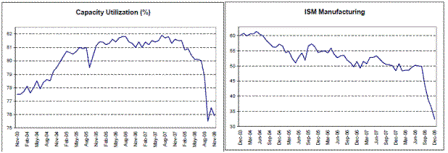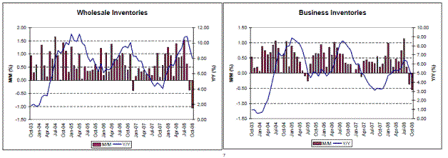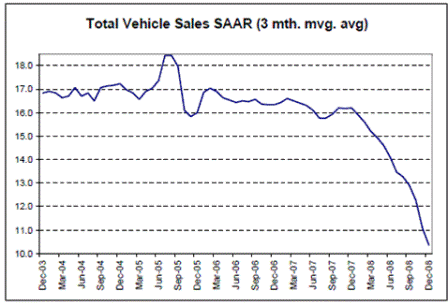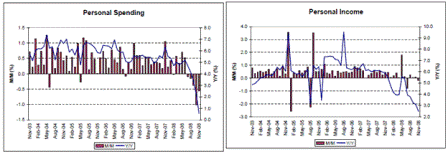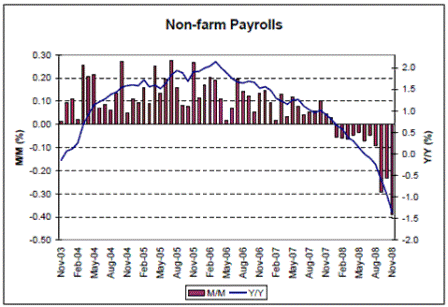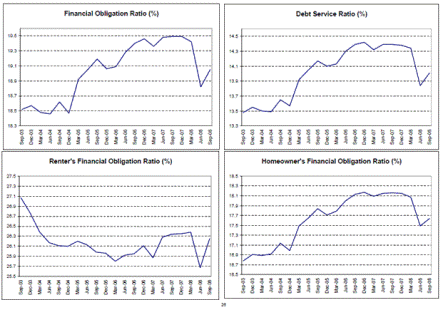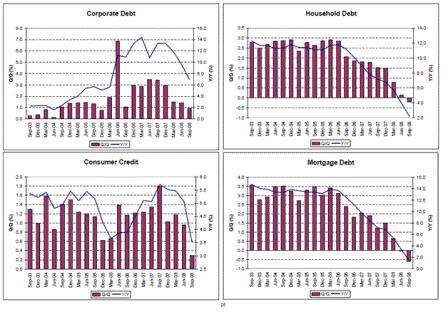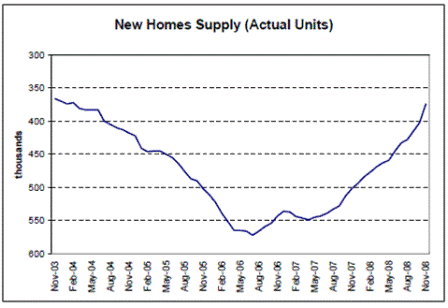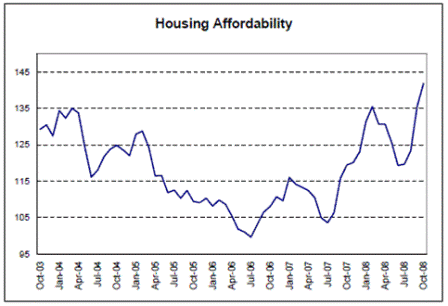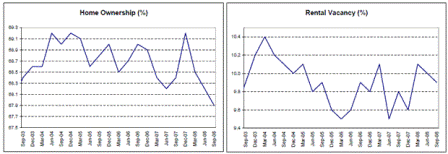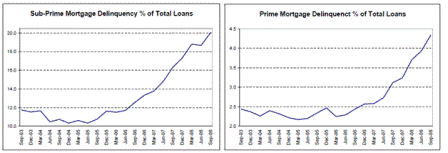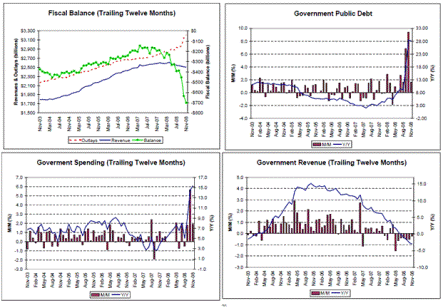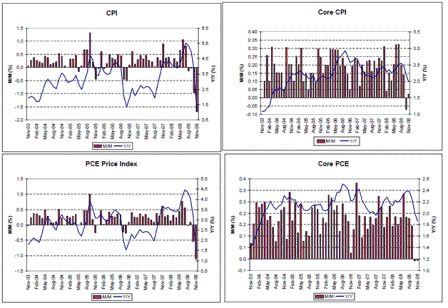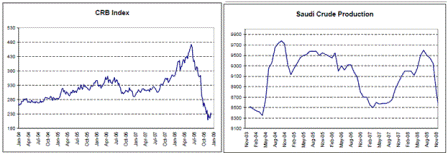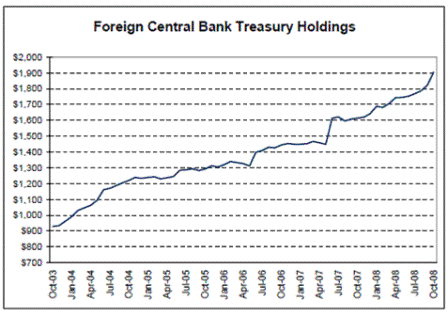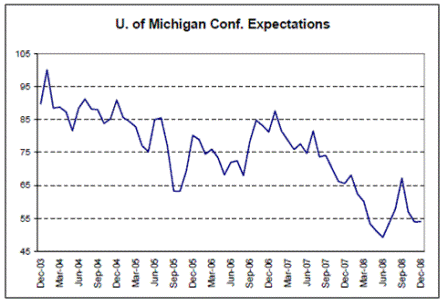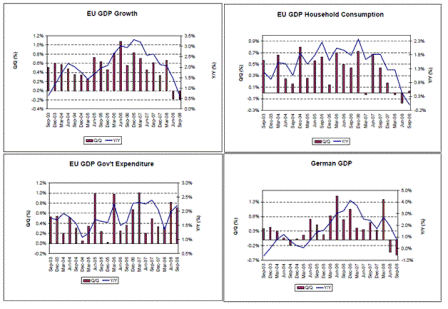Something went wrong in July. Most of the charts look like this:
It might have been the fall off of the q2 fiscal adjustment, the Olympics, the Lehman collapse, and/or, of course, the GMIL (Great Masters Inventory Liquidation).
And inventories also took a dive, from not all that high levels, adding to the slowdown.
Low inventories also mean the slow down need not last long when demand picks up with the coming fiscal adjustments.
What the car companies need is higher sales. Capital injections won’t go far with demand looking like this.
Notice personal income turning south with the Fed rate cuts, as interest income takes its toll. Yes, I know correlation doesn’t prove anything, but that’s my story and I’m sticking to it! Households are net savers and rate cuts eliminate income. Also, rates for savings have fallen a lot more than rates for borrowing this time around.
It’s been a long, slow dive, recently accelerating, since q2 06 when we pointed out the federal deficit was too small to sustain output and employment growth, due to the financial burdens ratios getting too high:
Looks like batteries have finally been recharged some over the last few years, even with personal income sagging.
All these look like household ‘balance sheets’ are improving.
And with rising federal budget deficits providing additional net financial assets this should continue.
Yes, the housing graphs, not shown look terrible, there are some signs it could all turn quickly:
Actual new home inventories are very low and probably picked over, as affordability continues to pick up.
Also, home ownership is low, and rental vacancies under control.
All indicating the coming fiscal adjustment could act more quickly than expected.
No let up here, however.
Unfortunately some of the latest Congressional incentives reward delinquency, anecdotally causing some otherwise good paying borrowers to not make payments to qualify for assistance.
It’s government to the rescue, as the automatic stabilizers do their thing to increase federal deficit spending and add income and savings of financial assets to the non govt. sectors.
Might be the output gap cutting down the rise in prices, and might be the GMIL (great Masters inventory liquidation). It’s too soon to tell- probably some of both.
Opec cuts seem to have stemmed the tide, and pave the way for the Saudis resuming their role of price setter. Demand has dropped very little. This is not the 80’s when demand dropped by over 15 million barrels per day after natural gas was deregulated in 1978 and it and coal replaced crude oil for most power generation.
Talk is cheap- supporting their exporters is a priority!
Cautions about the coming Obamaboom.
Hints of credit spreads stabilizing.
The eurozone is fading quickly, and it could all go bad here again if (when?) their financial structure melts down.
[top]

